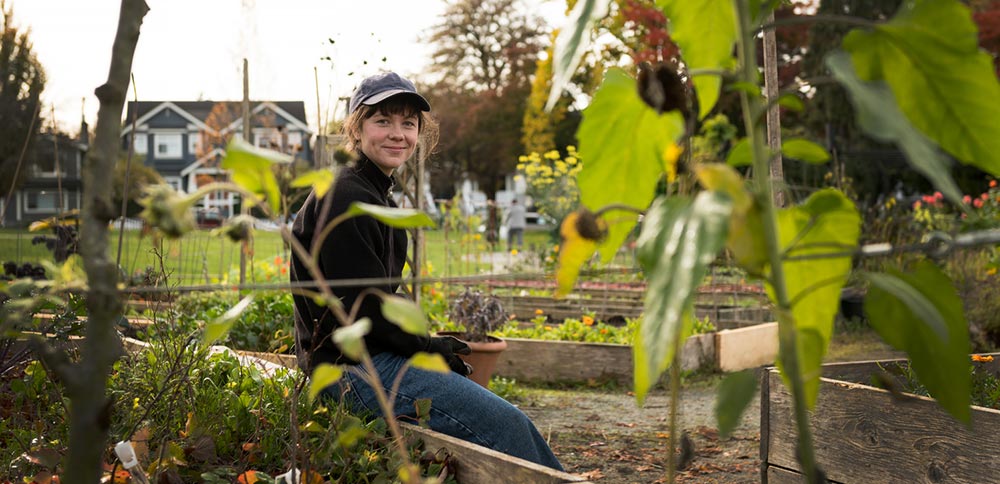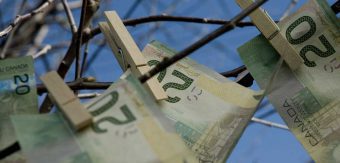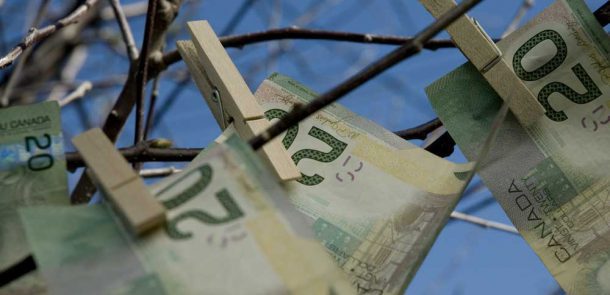In our “What your money is doing” series, we highlight things you support when you bank with Vancity.
Compared to most of us, Tracy Wilkins treads lightly on this earth.
The 25-year-old works for the local biking advocacy organization HUB. She cycles everywhere she needs to go. She’s earnest with her composting and recycling. She buys local and devotes herself to a minimalist “lighter living” ethic.
So imagine her shock when she signed on to the Green Bloc Neighbourhoods program last year, and she and her family measured their consumption and ecological footprint. That’s when she got wind of the startling news: if everyone consumed and behaved as she, her sister and parents did, the earth still wouldn’t be able to sustain itself.
A footprint “shocker”
In fact, this planet would need nearly two-and-a-half versions of itself to survive. (You can calculate your own ecological footprint to see how many planets we’d need if everybody lived like you.)
“It was a shocker,” says Tracy. “We knew we needed to do something.”
It was a critical lesson for Tracy, a leader, or “champion” of her neighbourhood’s Green Bloc group.

Green Bloc Neighbourhoods, a program run by Evergreen and supported with funding from Vancity’s EnviroFund, brings together teams of neighbours who pledge to re-examine the impact that their everyday habits have on urban life.
For the first week of the program, group members take stock of their habits around food consumption, energy, transportation, and waste. By the end of the year, the process is repeated. By then, participants measure how much they may have improved.
The first and final weeks of the challenge were the toughest, Tracy admits. Every team member must weigh their compost and metals. They have to separate recycling into cardboard, paper, and garbage.
This measurement stage is a critical part of the challenge, says Julia Gellman, an education manager at Evergreen.
“The ecological footprint survey provides us with rich data about resident-level consumption and behaviour in our city,” she says.
“The environmental data we get from this program shows us a baseline footprint for each neighbourhood, and also shows the reduction in footprint over the course of the program.”
Eco-champions in the neighbourhood
Since its inception in 2013, Green Bloc Neighbourhoods has coordinated teams from Riley Park, South Cambie (Tracy’s community), West End, Dunbar Southlands and Kensington Cedar-Cottage. Hastings-Sunrise and Sunset neighbourhoods joined in 2018.
Team leaders, or neighbourhood “champions” like Trac, keep the group’s momentum going. They exchange tips on how to eat locally and take advantage of alternatives to driving and flying. They learn about how reduce home energy use, eat less meat and get into the habit of recycling and composting.
Related stories
During her first year in the project, the opportunities to improve were obvious to Tracy.
With three cars in the household, trips by plane to Ontario, and Tracy’s dad’s job – which required frequent business trips by car – the family’s carbon use was mounting. Tracy gave the family a gentle push in the right direction.
“My dad started to second-guess himself on business trips,” Tracy recalls. “He started asking, ‘can we have a site call instead?’ He saw what it was doing to the planet.”
Environmentally savvy–and more social
The average Vancouver household uses 4.2 global hectares (gHa) per person, or about two-and-a-half planets if everyone lived like an average city resident, according to Evergreen. But Julia Gellman says we’re already ahead of our counterparts in other regions of the country: the average Canadian uses almost twice that amount, she notes.
Over the last four years, Green Bloc neighbourhoods have reduced their household footprints by an average of 15% over the course of the program.
By the end of the year, participants have made new connections and organized community projects. They have taken part in educational workshops. They’ve led events, and organized one final project that will make a significant mark on the community.
As she continues with the South Cambie team this year, Tracy says she’s struck by the ways in which Green Bloc transforms strangers into friends.
“The Green Bloc project encouraged me to take the time to think about what I want for my community’s future and act upon it.”








